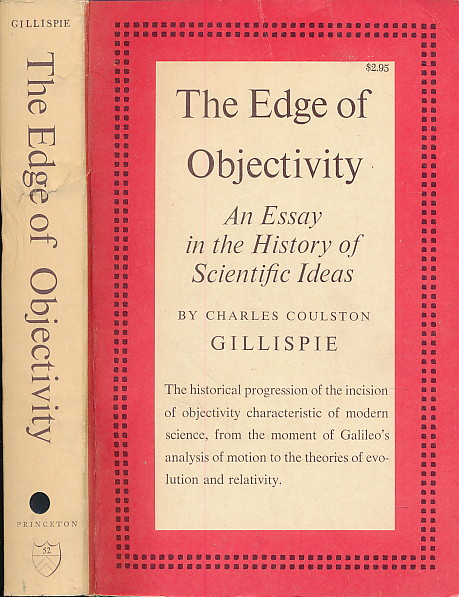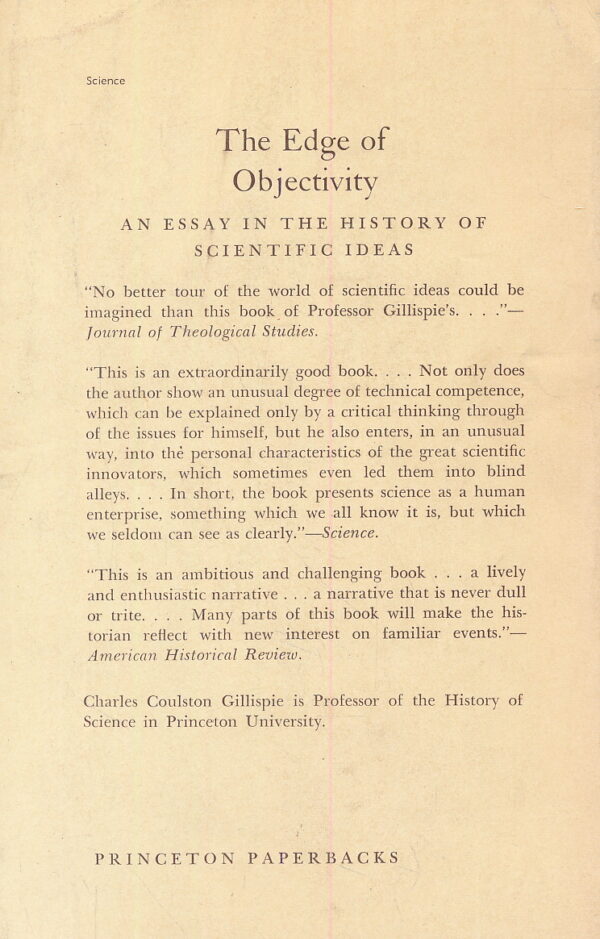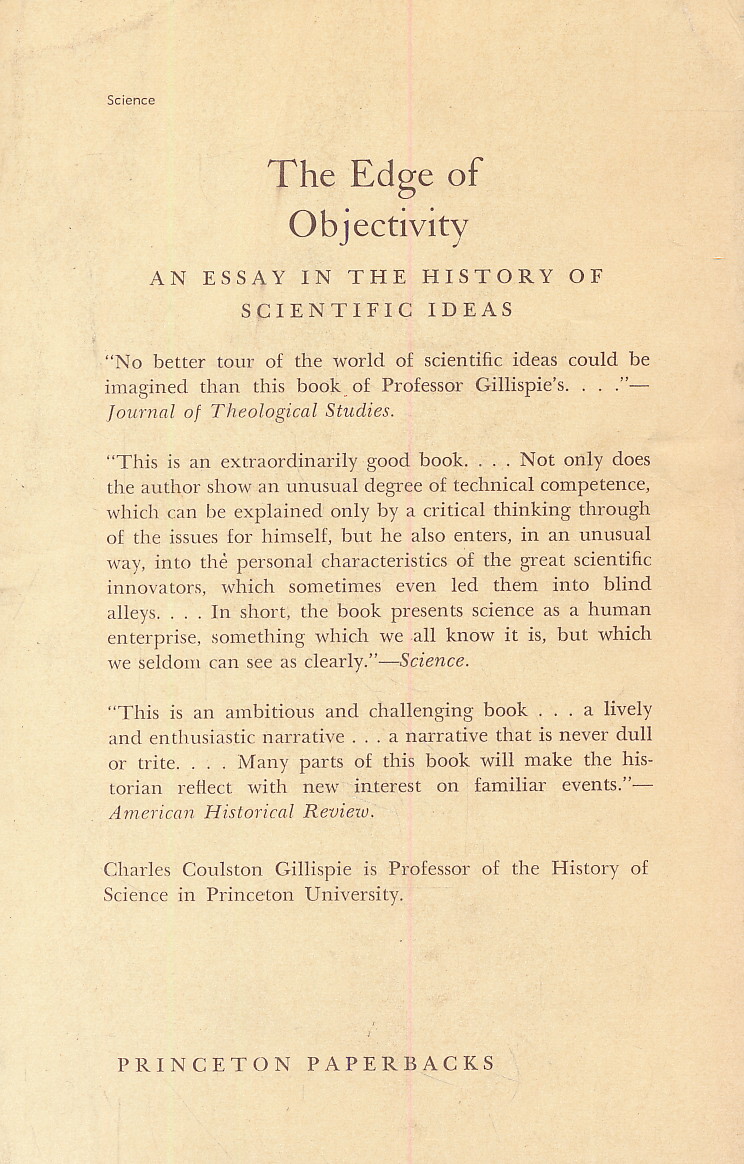The Edge of Objectivity An Essay in the History of Scientific Ideas
Izvorna cijena bila je: €15,00.€11,25Trenutna cijena je: €11,25.
Na zalihi
| Težina | 706 g |
|---|---|
| Format | 13 × 21 cm |
| Autor | |
| Izdavač | |
| Mjesto izdanja | Princeton |
| Godina | 1967 |
| Broj stranica | 562 |
| Uvez | Meki |
| Stanje knjige | Vrlo dobro |
Originally published in 1960, The Edge of Objectivity helped to establish the history of science as a full-fledged academic discipline. In the mid-1950s, a young professor at Princeton named Charles Gillispie began teaching Humanities 304, one of the first undergraduate courses offered anywhere in the world on the history of science. From Galileo’s analysis of motion to theories of evolution and relativity, Gillispie introduces key concepts, individuals, and themes. The Edge of Objectivity arose out of this course. It must have been a lively class. The Edge of Objectivity is pointed, opinionated, and selective. Even at five hundred pages, the book is, as the title suggests, an essay. Gillispie is unafraid to rate Mendel higher than Darwin, Maxwell above Faraday. Full of wry turns of phrase, the book effectively captures people and places. And throughout the book, Gillispie pushes an argument. He views science as the progressive development of more objective, detached, mathematical ways of viewing the world, and he orchestrates his characters and ideas around this theme.


